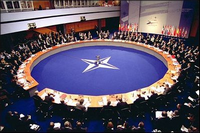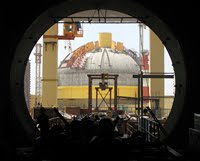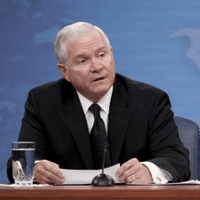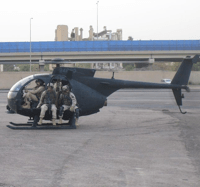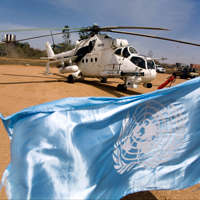
The announcement this week by India that it would be withdrawing its four remaining attack helicopters from the United Nations peacekeeping mission in the Democratic Republic of the Congo highlighted a long-simmering problem: The U.N. is desperate for more military helicopters. According to Alain LeRoy, the U.N. undersecretary-general for peacekeeping, military helicopters are badly needed for peacekeeping missions, particularly in Africa. While the shortage is serious and severely limits the U.N.’s ability to successful implement its mandates, there are several straightforward changes that the U.N. can make to its policies and procedures that would make contributing the needed helicopters more […]

